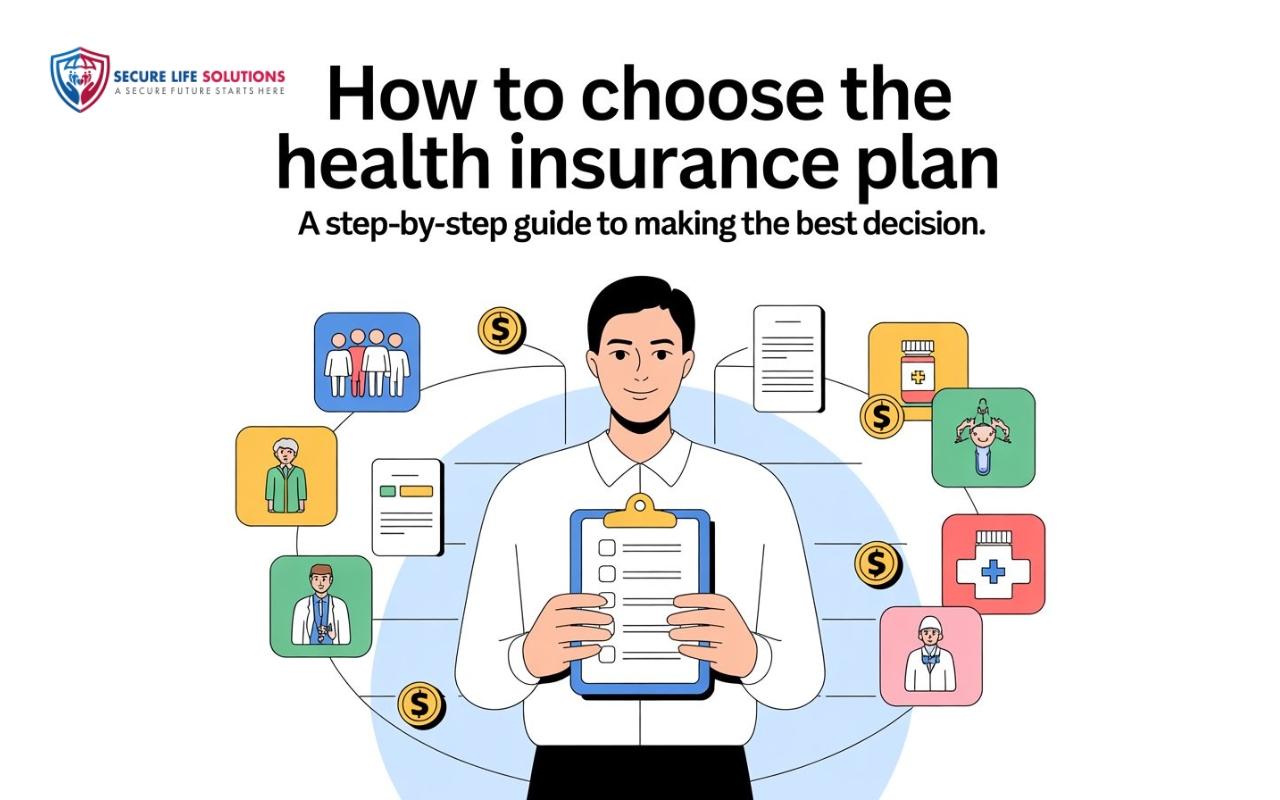
A health insurance plan can feel overwhelming, especially when there are so many plans, features, and medical terms to compare. But the truth is simple: the right health insurance plan protects your savings, gives you access to quality hospitals, and reduces stress during medical emergencies.
Health insurance ensures that when unexpected medical expenses arise whether from illness, surgery, or an accident you don't have to worry about money. Instead of paying hospital bills from your pocket, you are backed by a plan that provides financial support, cashless hospitalization, and peace of mind.
Health insurance is a financial agreement between you and an insurance company. You pay a fixed amount every year (called a health insurance premium), and in return, the insurance company pays your medical bills when you get hospitalized or undergo medical treatment.
You pay a little today to avoid paying a lot tomorrow.
Protects your savings during medical emergencies.
Covers hospitalization expenses, room rent, treatment and medicines.
Provides cashless treatment at network hospitals.
Offers tax benefits under Section 80D.
Ensures quality healthcare without worrying about cost.
Here’s how it generally works:
One of the biggest advantages of modern healthcare plans is cashless health insurance.
In cashless health insurance, you don’t pay anything at the hospital (except non-covered expenses like food or personal items). The insurance company directly settles the bill with the hospital.
How it works:
Go to a network hospital (hospitals tied with your insurer).
Show your health insurance card or policy number.
Hospital sends paperwork to insurer.
Bill is approved and settled zero stress, zero financial burden.
Cashless treatment is extremely helpful during emergency situations when arranging funds quickly becomes difficult.
Always check if the hospital is in the insurer’s network.
Inform the insurance help desk immediately upon hospitalization.
Keep your ID proof and insurance card handy.
The health insurance premium is the amount you pay to the insurance company every year to keep your policy active.
Factors that influence your premium:
Age – Higher age means higher risk, thus higher premium.
Sum insured – More coverage equals higher premium.
Lifestyle habits – Smoking and drinking can increase the premium.
Family members included – More members, higher premium.
Medical history – Existing medical conditions affect premium costs.
Example:
A 28-year-old may pay ₹7,000/year for a ₹5 lakh plan, but a 55-year-old may pay ₹20,000/year for the same coverage.
Smart tip:
Take health insurance when you are young. It's cheaper and easier to get approval.
As we age, our body becomes more vulnerable to illnesses and chronic conditions like diabetes, hypertension, and heart diseases. Hospitalization for senior citizens is common and expensive especially since treatments like bypass surgery or joint replacement can cost ₹3–₹8 lakh or more.
That’s why health insurance for senior citizens is extremely important.
Age eligibility:
Most insurers provide coverage from 60 to 75 years, but some plans go up to 80+ and lifetime renewability.
Look for a policy with no or low waiting period for pre-existing diseases.
Ensure that the plan provides cashless treatment in hospitals near your home.
Choose a plan with lifelong renewability.
Mistakes People Make While Buying Health Insurance ❌ Choosing the cheapest premium instead of best coverage Always evaluate coverage before cost. Under Section 80D of the Income Tax Act: So a person can save up to ₹75,000 per year just through health insurance. Choosing the right health insurance plan is not about picking the cheapest option, it's about choosing the one that gives the best protection when you need it most. Look for a plan that offers cashless treatment, reasonable health insurance premiums, and covers the needs of every family member, especially if you need health insurance for senior citizens. Medical emergencies are unpredictable, but financial stress doesn’t have to be. Invest in health insurance today. Invest in peace tomorrow. 1. What is health insurance? Health insurance is a policy that pays for hospitalization and medical treatment costs. 2. What is cashless health insurance? It allows you to get treatment without paying upfront the insurer settles the bill directly with the hospital. 3. How is health insurance premium calculated? Premium depends on age, sum insured, number of members covered, and medical history. 4. Can senior citizens get health insurance? Yes. There are dedicated health insurance plans designed specifically for senior citizens (60+). 5. Is there a tax benefit on health insurance? Yes, premiums paid are eligible for tax deduction under Section 80D.
❌ Not revealing medical history
❌ Buying insurance late in life
❌ Not checking hospital network availabilityTax Benefits of Health Insurance
Final Thoughts
Frequently Asked Questions (FAQs)